- Home
- D. H. Lawrence
Kangaroo Page 23
Kangaroo Read online
Page 23
Fair weather and foul alternated. Sometimes the brig Harriet and Lovat skimmed along the path of the moon like a phantom: sometimes she lay becalmed, while sharks flicked her bottom: then she drove into the most awful hurricanes, and spun round in a typhoon: and yet behold her sailing out through the glowing arch of a rainbow into halcyon waters again. And so for years, till she began to look rather worn, but always attractive. Her paint had gone, so her timbers now were sea-silvery. Her sails were thin, but very white. The mainsail also was slit, and the stun-sails had been carried away in a blizzard. As for the flag of perfect love, the flag of the red-and-white rose upon the cross of thorns, all on a field of azure, it was woefully frayed and faded. The azure field was nearly tattered away, and the rose was fading into invisibility.
She had some awful weather, did the poor barque Harriet and Lovat. The seas opened great jaws to swallow her, the treacherous seas of perfect love, while cynical rocks gnashed their teeth at her, and unstable heavens opened chasms of wind on her, and fierce, full-blooded lusty bull-whales rushed at her and all but burst her timbers. Dazed and battered, she wandered hither and thither on the seas of perfect love, that she always had all to herself. Never another sail in sight, never another ship in hail. Only sometimes the smoke of a steamer skirting the horizon, making for one of the oceans.
And now the Harriet and Lovat began to feel the pull of the two opposing currents. It was as if she had a certain homesickness for one or other of the populous oceans: she was weary of the lone and wasteful waters of the sea of perfect love. Sometimes she drifted ENE towards the Atlantic of true companionship. And then Lovat, seeing the long swell of that grey sea, and the funnels of ships like a city suburb, put the helm hard aport, and turned the ship about, and beat against a horrible sea and wind till they got into the opposite drift. Then things went a little easier, till Harriet saw before her the awful void opening of the other ocean, and the great, dark-blue, dominant swell of the waters, and the loneliness and the vastness and the feeling of being overwhelmed. She looked at the mast and saw the flag of perfect love falling limp, the faded rose of all roses dying at last.
And in a moment when he was asleep, her almost lord-and-master, she whipped the ship about and steered ESE into the heart of the sea of perfect love, hoping to get into the current ENE and so out into the open Atlantic. Then storms intolerable.
Then they took to cruising the far, lone, desert fringes of the sea of perfect love, utterly lonely and near the ice, the fringe of the seas of death. There they cruised, in the remote waters on the edge of extinction. And then they looked at one another.
‘We will be perfect companions: you know how I love you,’ said Harriet, of the good ship Harriet and Lovat.
‘Never,’ said Lovat, of the same ship. ‘I will be lord and master, but ah, such a wonderful lord and master that it will be your bliss to belong to me. Look, I have been sewing a new flag.’
She didn’t even look at the flag.
‘You!’ she exclaimed. ‘You a lord and master! Why, don’t you know that I love you as no man ever was loved? You a lord and master! Ph! you look it! Let me tell you I love you far, far more than ever you ought to be loved, and you should acknowledge it.’
‘I would rather,’ said he, ‘that you deferred your loving of me for a while, and considered the new proposition. We shall never sail any straight course at all, until you realise that I am lord and master, and you my blissful consort. Supposing, now, you had the real Hermes for a husband, Trismegistus. Would you not hold your tongue for fear you lost him, and change from being a lover, and be a worshipper? Well, I am not Hermes or Dionysus, but I am a little nearer to it than you allow. And I want you to yield to my mastery and my divination, and let me put my flag of a phoenix rising from a nest in flames in place of that old rose on a field azure. The gules are almost faded out.’
‘It’s a lovely design!’ she cried, looking at the new flag. ‘I might make a cushion-embroidery of it. But as a flag it’s absurd. Of course, you lonely phoenix, you are the bird and the ashes and the flames all by yourself! You would be. Nobody else enters in at all. I—I am just nowhere—I don’t exist.’
‘Yes,’ he said, ‘you are the nest.’
‘I’ll watch it!’ she cried. ‘Then you shall sleep on thorns, Mister.’
‘But consider,’ he said.
‘That’s what I am doing,’ she replied. ‘Mr Dionysus and Mr Hermes and Mr Thinks-himself-grand. I’ve got one thing to tell you. Without me you’d be nowhere, you’d be nothing, you’d not be that,’ and she snapped her fingers under his nose, a movement he particularly disliked.
‘I agree,’ he replied, ‘that without the nest the phoenix would be—would be up a tree—would be in the air—would be nowhere, and couldn’t find a stable spot to resurrect in. The nest is as the body to the soul: the cup that holds the fire, and in which the ashes fall to take form again. The cup is the container and the sustainer.’
‘Yes, I’ve done enough containing and sustaining of you, my gentleman, in the years I’ve known you. It’s almost time you left off wanting so much mothering. You can’t live a moment without me.’
‘I admit that the phoenix without a nest is a bird absolutely without a perch, he must dissipate in the air. But—’
‘Then I’ll make a cushion cover of your flag, and you can rest on that.’
‘No, I’m going to haul down the flag of perfect love.’
‘Oh, are you! And sail without a flag? Just like you, destroy, destroy, and nothing to put in its place.’
‘Yes, I want to put in its place this crowned phoenix rising from the nest in flames. I want to set fire to our barque, Harriet and Lovat, and out of the ashes construct the frigate, Hermes, which name still contains the same reference, her and me, but which has a higher total significance.’
She looked at him speechless for some time. Then she merely said:
‘You’re mad,’ and left him with his flag in his hands.
Nevertheless he was a determined little devil, as she knew to her cost, and once he’d got an idea into his head not heaven nor hell nor Harriet would ever batter it out. And now he’d got into his head this idea of being lord and master, and Harriet’s acknowledging him as such. Not just verbally. No. Not under the flag of perfect love. No. Obstinate and devilish as he was, he wanted to haul down the flag of perfect love, to set fire to the barque Harriet and Lovat, to seat himself in glory on the ashes, like a resurrected phoenix, with an imaginary crown on his head. And she was to be a comfortable nest for his impertinence.
In short, he was to be the lord and master, and she the humble slave. Thank you. Or at the very best, she was to be a sort of domestic Mrs Gladstone, the Mrs Gladstone of that old chestnut—who, when a female friend was lamenting over the terrible state of affairs, in Ireland or somewhere, and winding up her lament with: ‘Terrible, terrible. But there is One above’—replied: ‘Yes, he’s just changing his socks. He’ll be down in a minute.’ Mr Lovat was to be the One above, and she was to be happy downstairs thinking that this lord, this master, this Hermes cum Dionysus wonder, was comfortably changing his socks. Thank you again. The man was mad.
Yet he stuck to his guns. She was to submit to the mystic man and male in him, with reverence, and even a little awe, like a woman before the altar of the great Hermes. She might remember that he was only human, that he had to change his socks if he got his feet wet, and that he would make a fool of himself nine times out of ten. But—and the but was emphatic as a thunderbolt—there was in him also the mystery and lordship of—of Hermes, if you like—but the mystery and the lordship of the forward-seeking male. That she must emphatically realise and bow down to. Yes, bow down to. You can’t have two masters of one ship: neither can you have a ship without a master. The Harriet and Lovat had been an experiment of ten years’ endurance. Now she was to be broken up, or burnt, so he said, and the non-existent Hermes was to take her place.
You can’t have two masters to one ship. An
d if it is a ship: that is, if it has a voyage to sail, a port to make, even a far direction to take, into the unknown, then a master it must have. Harriet said it wasn’t a ship, it was a houseboat, and they could lie so perfectly here by the Pacific for the rest of time—or be towed away to some other lovely spot to house in. She could imagine no fairer existence. It was a houseboat.
But he with his no, no, he almost drove her mad. The barque of their marriage was a ship that must sail into uncharted seas, and he must be the master, and she must be the crew, sworn on. She was to believe in his adventure and deliver herself over to it; she was to believe in his mystic vision of a land beyond this charted world, where new life rose again.
And she just couldn’t. His land beyond the land men knew, where men were more than they are now: she couldn’t believe in it. ‘Then believe in me,’ he said desperately. ‘I know you too well,’ she replied. And so, it was an impasse.
Him, a lord and master! Why, he was not really lord of his own bread and butter; next year they might both be starving. And he was not even master of himself, with his ungovernable furies and his uncritical intimacies with people: even people like Jack Callcott, whom Harriet quite liked, but whom she would never have taken seriously. Yet there was Lovat pouring himself out to him. Pah—believe! How could one believe in such a man! If he had been naturally a master of men, general of an army, or manager of some great steel works, with thousands of men under him—then, yes, she could have acknowledged the master part of the bargain, if not the lord. Whereas, as it was, he was the most forlorn and isolated creature in the world, without even a dog to his command. He was so isolated he was hardly a man at all, among men. He had absolutely nothing but her. Among men he was like some unbelievable creature—an emu, for example. Like an emu in the streets or in a railway carriage. He might well say phoenix.
All he could do was to try and come it over her with this revolution rubbish and a stunt of ‘male’ activity. If it were even real!
He had nothing but her, absolutely. And that was why, presumably, he wanted to establish this ascendancy over her, assume this arrogance. And so that he could refute her, deny her, and imagine himself a unique male. He wanted to be male and unique, like a freak of a phoenix. And then go prancing off into connections with men like Jack Callcott and Kangaroo, and saving the world. She could not stand these world-saviours. And she, she must be safely there, as a nest for him, when he came home with his feathers pecked. That was it. So that he could imagine himself absolutely and arrogantly It, he would turn her into a nest, and sit on her and overlook her, like the one and only phoenix in the desert of the world, gurgling hymns of salvation.
Poor Harriet! No wonder she resented it. Such a man, such a man to be tied to and tortured by!
And poor Richard! To be a man, and to have a man’s uneasy soul for his bedfellow.
But he kicked against the pricks. He did not yet submit to the fact which he half knew: that before mankind would accept any man for a king, and before Harriet would ever accept him, Richard Lovat, as a lord and master, he, the selfsame Richard who was so strong on kingship, must open the doors of his soul and let in a dark Lord and Master for himself, the dark god he had sensed outside the door. Let him once truly submit to the dark majesty, break open his doors to this fearful god who is master, and enters us from below, the lower doors; let himself once admit a Master, the unspeakable god: and the rest would happen.
The fire began to burn the stick,
The stick began to beat the dog,
The dog began to bite the pig,
The pig began to go over the bridge,
And so the old woman got home that night…
CHAPTER X
DIGGERS
THEY had another ferocious battle, Somers and Harriet; they stood opposite to one another in such fury one against the other that they nearly annihilated one another. He couldn’t stay near her, so started walking off into the country. It was winter, but sunny, and hot walking. He climbed steadily up and up the highroad between the dense, damp jungle that grew at the base and up the steep rise of the tor-face, which he wanted to get to the top of. Strange birds made weird, metallic noises. Tree ferns rose on their notchy little trunks, and great mosses tangled in with more ordinary bushes. Overhead rose the gum trees, sometimes with great stark, dead limbs thrown up, sometimes hands over like pine trees.
He sweated up the steep road till at last he came to the top. There, on the farther side, the dip slope, the hills sank and ran in spurs, all fairly densely wooded, but not like the scarp slope up which he had toiled. The scarp slope was jungle, impenetrable, with tree ferns and bunchy cabbage palms and mosses like bushes, a thick matted undergrowth beneath the boles of the trees. But the dip slope was bush: gum trees rather scattered, and a low undergrowth like heath. The same lonely, unbreakable silence and loneliness that seemed to him the real bush. Curiously unapproachable to him. The mystery of the bush seems to recede from you as you advance, and then it is behind you if you look round. Lonely, and weird, and hoary.
He went on till he could look over the tor’s edge at the land below. There was the scalloped seashore, for miles, and the strip of flat coast-land, sometimes a mile wide, sprinkled as far as the eye could reach with the pale-grey zinc roofs of the bungalows: all scattered like crystals in the loose cells of the dark tree-tissue of the shore. It was suggestive of Japanese landscape, dark trees and little, single, scattered toy houses. Then the bays of the shore, the coal-jetty, far off rocks down the coast, and long white lines of breakers.
But he was looking mostly straight below him, at the massed foliage of the cliff-slope. Down into the centre of the great, dull-green whorls of the tree ferns, and on to the shaggy mops of the cabbage palms. In one place a long fall of creeper was yellowish with damp flowers. Gum trees came up in tufts. The previous world!—the world of the coal age. The lonely, lonely world that had waited, it seemed, since the coal age. These ancient flat-topped tree ferns, these tousled palms like mops. What was the good of trying to be an alert conscious man here? You couldn’t. Drift, drift into a sort of obscurity, backwards into a nameless past, hoary as the country is hoary. Strange old feelings wake in the soul: old, non-human feelings. And an old, old indifference, like a torpor, invades the spirit. An old, saurian torpor. Who wins? There was the land sprinkled with dwellings as with granulated sugar. There was a black smoke of steamers on the high pale sea, and a whiteness of steam from a colliery among the dull trees. Was the land awake? Would the people waken this ancient land, or would the land put them to sleep, drift them back into the semi-consciousness of the world of the twilight?
Somers felt the torpor coming over him. He hung there on the parapet looking down, and he didn’t care. How profoundly, darkly he didn’t care. There are no problems for the soul in its darkened, wide-eyed torpor. Neither Harriet nor Kangaroo nor Jaz, nor even the world. Worlds come, and worlds go: even worlds. And when the old, old influence of the fern-world comes over a man, how can he care? He breathes the fern seed and drifts back, becomes darkly half vegetable, devoid of preoccupations. Even the never-slumbering urge of sex sinks down into something darker, more monotonous, incapable of caring: like sex in trees. The dark world before conscious responsibility was born.
A queer bird sat hunched on a bough a few yards away, just below; a bird like a bunch of old rag, with a small rag of a dark tail, and a fluffy pale top like an owl, and a sort of frill round his neck. He had a long, sharp, dangerous beak. But he too was sunk in unutterable apathy. A kukooburra! Some instinct made him know that Somers was watching, so he just shuffled round on the bough and sat with his back to the man, and became utterly oblivious. Somers watched and wondered. Then he whistled. No change. Then he clapped his hands. The bird looked over its shoulder in surprise. What! it seemed to say. Is there somebody alive? Is that a live somebody? It had quite a handsome face, with the exquisite long, dagger beak.
It slowly took Somers in. Then he clapped again. Making an effort the
bird spread quite big wings and whirred in a queer, flickering flight to a bough a dozen yards farther off. And there it clotted again.
Ah well, thought Somers, life is so big, and has such huge ante-worlds of grey twilight. How can one care about anything in particular!
He went home again, and had forgotten the quarrel and forgotten marriage or revolutions or anything: drifted away into the grey pre-world where men didn’t have emotions. Where men didn’t have emotions and personal consciousness, but were shadowy like trees, and on the whole silent, with numb brains and slow limbs and a great indifference.
But Harriet was waiting for him rather wistful, and loving him rather quiveringly. And yet even in the quiver of her passion was some of this indifference, this twilight indifference of the fern-world.
Jack and Victoria came for the weekend, and Somers and Callcott met in a much nearer sympathy than they had ever known before. Victoria was always thrilled and fascinated by both the Somers: they had an inexhaustible fascination for her, the tones of their voices, their manner, their way with each other. She could not understand the strange sureness they had in themselves, the sureness of what they were saying or going to say, the sureness of what they were feeling. For herself, her words fluttered out of her without her direct control, and her feelings fluttered in her the same. She was one perpetually agitated dovecot of words and emotions, always trying consciously to find herself amid the whirl, and never quite succeeding. She thought someone might tell her. Whereas the Somers had an unconscious sureness, something that seemed really royal to her. But she had in the last issue the twilight indifference of the fern-world. Only she still quivered for the light.
Poor Victoria! She clung to Jack’s arm vibrating, always needing to vibrate outwards. And he seemed to become more Australian and apathetic every week. The great indifference, the darkness of the fern-world, upon his mind. Then spurts of energy, spurts of sudden violent desire, spurts of gambling excitement. But the mind in a kind of twilight sleep.

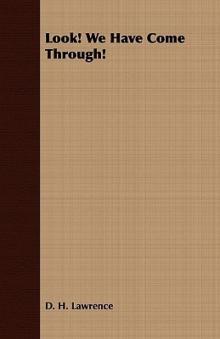 Look! We Have Come Through!
Look! We Have Come Through!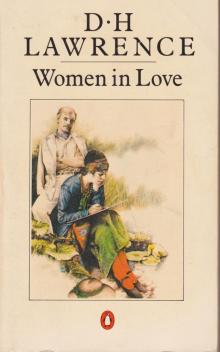 Women in Love
Women in Love The Ladybird
The Ladybird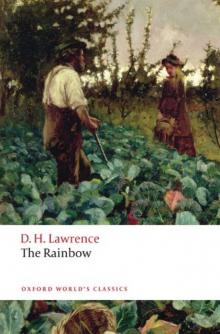 The Rainbow
The Rainbow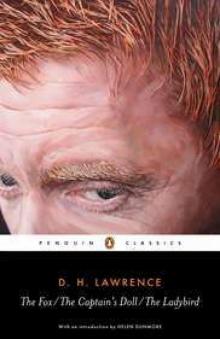 The Captain's Dol
The Captain's Dol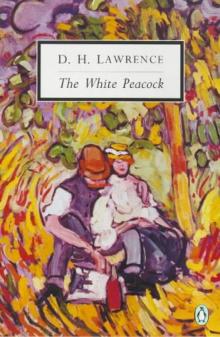 The White Peacock
The White Peacock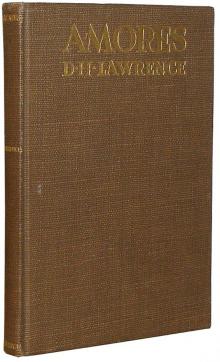 Amores
Amores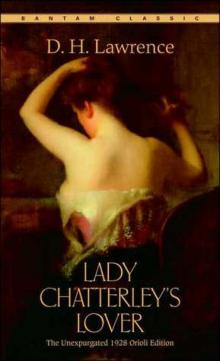 Lady Chatterley's Lover
Lady Chatterley's Lover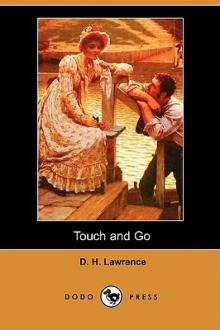 Touch and Go
Touch and Go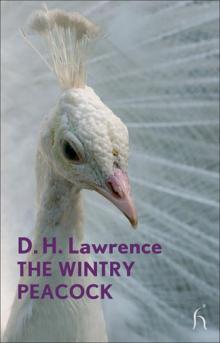 The Wintry Peacock
The Wintry Peacock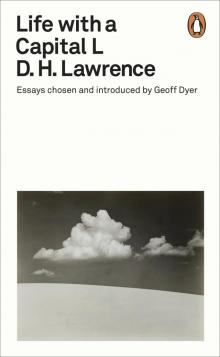 Life with a Capital L
Life with a Capital L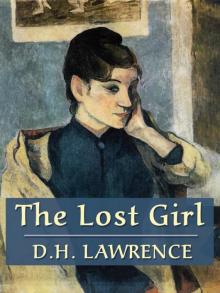 The Lost Girl
The Lost Girl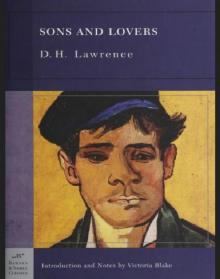 Sons and Lovers
Sons and Lovers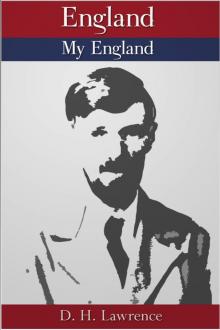 England, My England
England, My England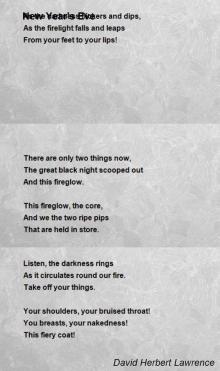 New Poems
New Poems Twilight in Italy
Twilight in Italy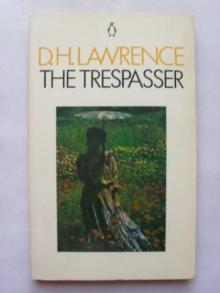 The Trespasser
The Trespasser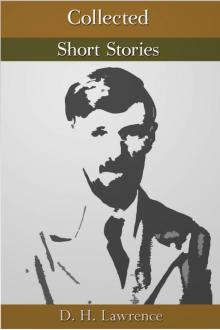 The Collected Short Stories
The Collected Short Stories The First Lady Chatterley's Lover
The First Lady Chatterley's Lover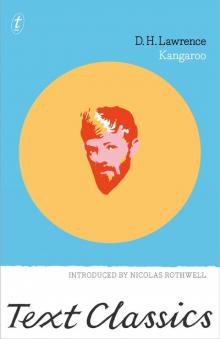 Kangaroo
Kangaroo Bay
Bay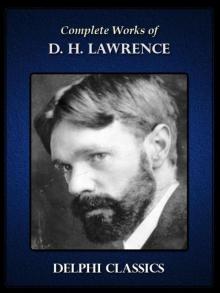 Complete Works of D.H. Lawrence
Complete Works of D.H. Lawrence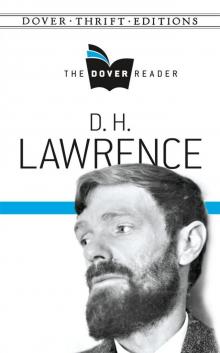 D H Lawrence- The Dover Reader
D H Lawrence- The Dover Reader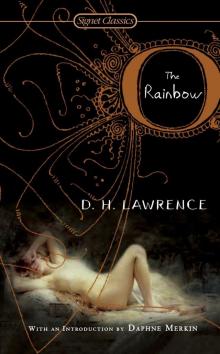 The Rainbow (100th Anniversary ed.)
The Rainbow (100th Anniversary ed.)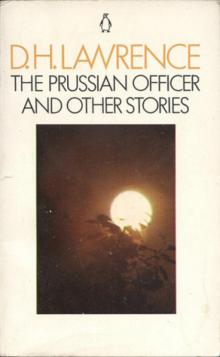 The Prussian Officer
The Prussian Officer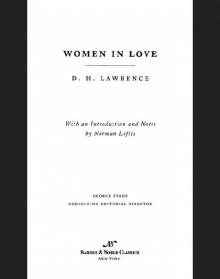 Women in Love (Barnes & Noble Classics Series)
Women in Love (Barnes & Noble Classics Series) John Thomas and Lady Jane
John Thomas and Lady Jane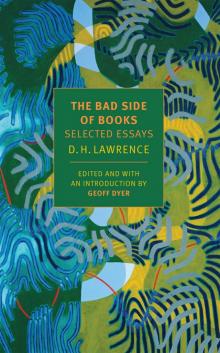 The Bad Side of Books
The Bad Side of Books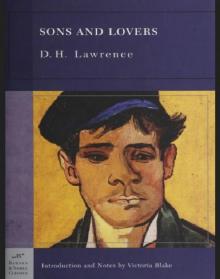 Sons and Lovers (Barnes & Noble Classics Series)
Sons and Lovers (Barnes & Noble Classics Series) Selected Stories
Selected Stories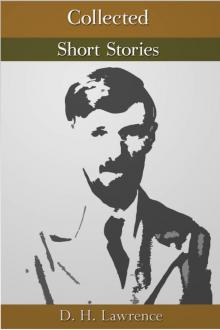 Collected Short Stories
Collected Short Stories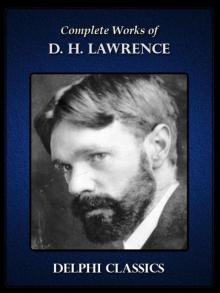 Complete Works of D.H. Lawrence (Illustrated)
Complete Works of D.H. Lawrence (Illustrated)